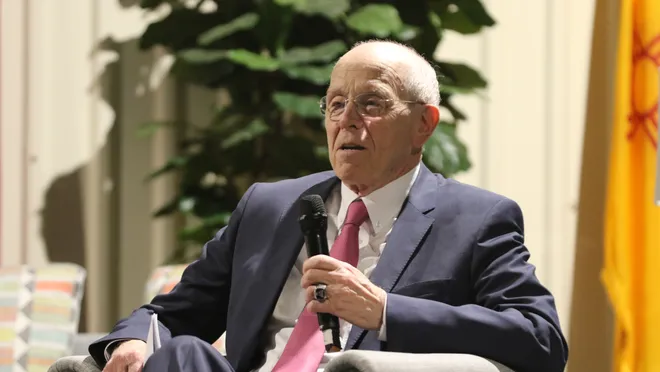 First, it was a demand slump across pretty much every manufacturing industry because of the pandemic. Then a surge in demand for electronics caused a shortage of microchips, which hit the automotive industry particularly hard. Now, the Texas Freeze has caused a global shortage of plastics. The Wall Street Journal reported this week that the cold spell that shut down oil fields and refineries in Texas is still affecting operations, with several petrochemical plants on the Gulf Coast remaining closed a month after the end of the crisis. This creates a shortage of essential raw materials for a range of industries, from car making to medical consumables and even house building.
First, it was a demand slump across pretty much every manufacturing industry because of the pandemic. Then a surge in demand for electronics caused a shortage of microchips, which hit the automotive industry particularly hard. Now, the Texas Freeze has caused a global shortage of plastics. The Wall Street Journal reported this week that the cold spell that shut down oil fields and refineries in Texas is still affecting operations, with several petrochemical plants on the Gulf Coast remaining closed a month after the end of the crisis. This creates a shortage of essential raw materials for a range of industries, from car making to medical consumables and even house building.
The WSJ report mentions carmakers Honda and Toyota as two companies that would need to start cutting output because of the plastics shortage, which came on top of an already pressing shortage of microchips. Ford, meanwhile, is cutting shifts because of the chip shortage and building some models only partially. GM, on the other hand, has started building some pickup trucks without a fuel management module because of the shortages, which will affect the fuel economy performance of these cars.
Yet, the auto making industry is just one victim of the abnormal circumstances on the planet and the Gulf Coast. Another is the construction industry. The WSJ reports, citing industry insiders, that following the petrochemical shutdowns, builders are bracing for shortages of everything from siding to insulation.
More than 60 percent of polyvinyl chloride (PVC) production capacity in the United States is still out of operation a month after the Texas Freeze, Bloomberg reported earlier this month. This has caused the price of one of the most versatile products of petrochemical plants to skyrocket to a record high of $1,625 per ton for U.S. exports, according to data from ICIS. Polyvinyl chloride is used for piping, roofing, flooring, cable insulation, siding, car windshields, and car interiors.
Polyethylene prices are also running at record highs, according to the ICIS data cited by Bloomberg. The shortage is so severe that there is not enough polyethylene to meet domestic demand in the United States, according to chemical industry insiders. And this is happening at a time when the chemicals industry was already hurt by a bad hurricane season. It is also happening at a time when consumer demand is expected to return with a vengeance after Congress approved President Biden’s $1.9-trillion stimulus package.
“We could also see upward pressure on prices if spending rebounds quickly as the economy continues to reopen, particularly if supply bottlenecks limit how quickly production can respond in the near-term,” Fed Chairman Jerome Powell said earlier this week. “However, these one-time increases in prices are likely to have only transient effects on inflation.”
Supply bottlenecks caused by the plastics—and the chip—shortage are already a fact. And while one of the things they have made clear is how complex and vulnerable global supply chains are, the other is how dependent we are on plastics.
Normally, when we think about plastics, chances are that the first image that comes to mind is a single-use water bottle or a food container. Yet the truth is that various kinds of plastic are used in every single industry and there is no way we can wean ourselves off it. Unless we are willing to wean ourselves off cable insulation, that is.
Big Oil has seen its future in petrochemicals for a while now after it became clear this time that the energy transition will not be just talk and no action. There have been doubts that this is the safest bet for an industry that currently derives most of its revenues from fuels, especially as a growing number of countries set their sights on single-use plastics. In fact, Carbon Tracker last year warned that Big Plastic plans could lead to $400 billion in stranded assets as oil companies overestimated plastic demand growth.
Yet, the current shortage seems to prove the bet on petrochemicals is safe. While there are alternatives to gasoline and diesel-powered cars, an economically viable alternative to plastic cable insulation—or a car interior, or a smartphone casing, or a laptop, or a thousand other things from everyday life—has yet to make an appearance.
The industry may have overestimated the growth trajectory of plastics demand—this will become clear in due time as we see how much further plastics recycling could advance. Yet the current plastics shortage is proving that recycling is all well and good when it comes to plastics, but a shift entirely away from them the way many see a complete detachment from fossil fuel-powered vehicles is quite unlikely in the observable future. Biodegradable alternatives exist, but they are normally one of two things: a lot more expensive and/or a lot less durable. And while this is fine for toothbrushes and food packaging, it is very much not fine for laptop casings and cable insulation.
Source: https://oilprice.com/Energy/Energy-General/Texas-Freeze-Creates-Global-Plastics-Shortage.html




0 Comments